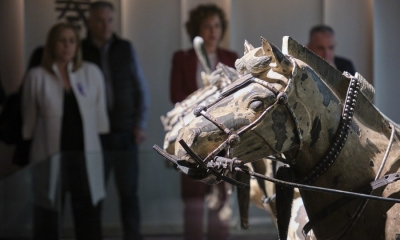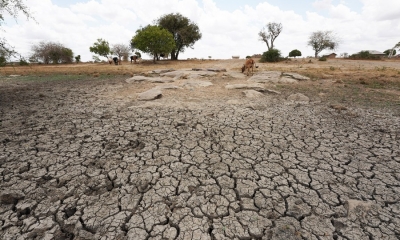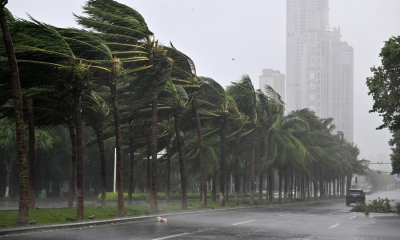The Abuse of Xinjiang
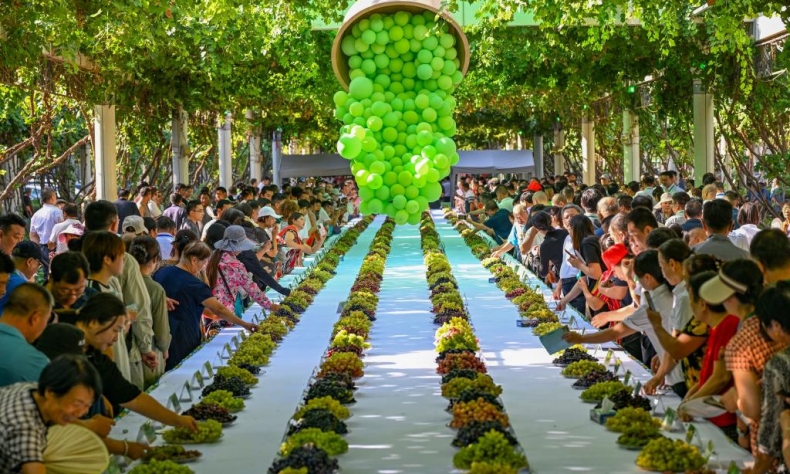
Mainstream and social media are coopted in the cause of public diplomacy to turn global opinion against China through a mix of innuendo, partial truth, untruths and disputed facts.
The people of Xinjiang have always needed to be resilient.
Over four-hour flight time from Beijing, Xinjiang Uygur Autonomous Region is located on China’s western border. Historically, Xinjiang’s people have needed to hold steadfast against invaders while encouraging trade between China and central Asia, Europe and beyond. For 25 years until 2016, they also witnessed multiple atrocities perpetrated by separatists.
Today their resilience is being tested as never before. They have become collateral damage in a geopolitical struggle in which the United States (U.S.) sees China as a new rival to its hegemonic position and its self-proclaimed global leadership. Surrounded by advisors, trained to believe that international relations constitute a battle with only one winner, U.S. leaders cannot imagine that China really believes in collaboration and partnership. They cannot countenance that China is seeking a “win-win” solution in which everyone gains.
The election slogan of “America first” is an unusually accurate depiction of what has been U.S. foreign policy ever since The Declaration of Independence in 1776. In line with this policy goal, the likely intent of any U.S. administration is to contain China’s economy. Japan, Germany and the Soviet Union have been previous victims.
The battle is being fought through the extraterritorial application of U.S. domestic law to impose economic and other sanctions on China. It additionally exerts pressure on allies to do likewise, both through diplomatic means and by subjecting them to secondary sanctions. Mainstream and social media are coopted in the cause of public diplomacy to turn global opinion against China through a mix of innuendo, partial truth, untruths and disputed facts.
The multiple unilateral measures taken against China are of three types: trade sanctions, technology sanctions and human rights restrictive measures.
Trade sanctions were initially imposed under the first Trump administration in 2017. Import tariffs and export embargos target specific Chinese economic enterprises and third country nationals that might trade with them.
Sanctions against high-tech companies are underpinned by domestic legislation referring to “national and economic security.” Those sanctioned are typically alleged to have engaged in unspecified malign activities.
Restrictive measures employed under the banner of human rights include legislation and administrative orders. Application of the Tariff Act 1930 requires only “suspicion that imported or potentially imported products to the U.S. involve forced labor.” Administrative “advisories” have no legal force but threaten companies with the possibility of “legal and reputational risks.”
Xinjiang, resource rich, a world leader in green technology, and China’s land route to the West, is bearing the brunt of unilateral coercive measures. The unproven allegation is of forced labor and even genocide. With the coverage of sanctions repeatedly expanded, almost everything associated with Xinjiang – goods, companies and individuals – is now under threat. Enterprises have been forced to close and workers are laid off with painful consequences for families and communities.
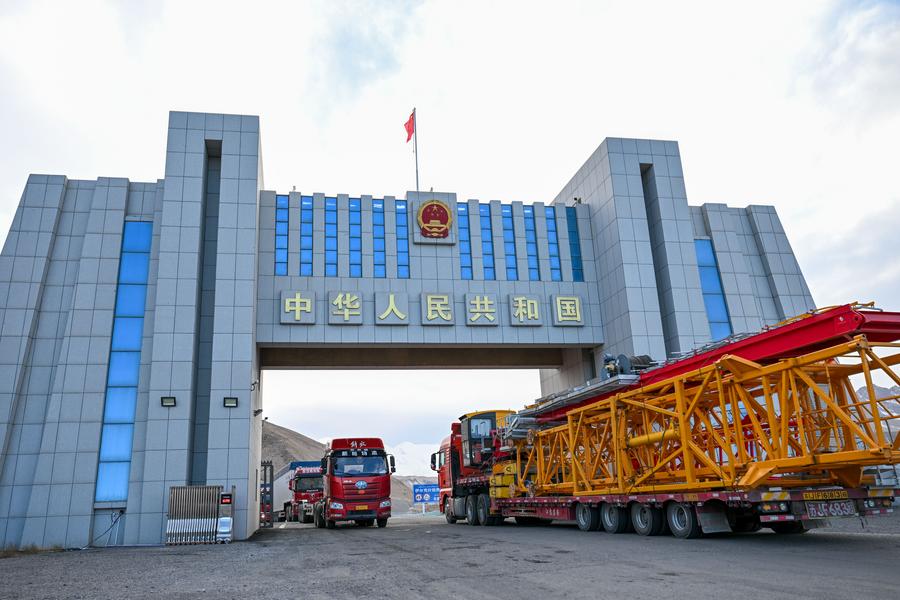
Resisting sanctions through international dispute settlement is difficult. The World Trade Organization appellate body is defunct because the U.S. refuses to approve new membership. Accusations made against Chinese enterprises are unspecific and must be contested through the U.S. legal system, prohibitively expensive for small companies.
Challenging the presumption of guilt entails proving a negative – no abuse – which is logically impossible. Not surprisingly, therefore, this requirement violates fundamental principles of international law and provisions of the UN General Assembly.
Indeed, the great irony is that it is China that is being abused and is legally in the right. This was clarified in a report presented to the UN General Assembly in August 2024 by the specially appointed rapporteur. The report states that:
“Unilateral sanctions against China, or against Chinese companies or individuals, neither conform with international law nor meet the criteria for collective countermeasures… They, therefore, constitute unilateral coercive measures [that are illegal].”
“In view of the illegality of primary sanctions, the means of their enforcement, including secondary sanctions and civil and criminal charges for alleged circumvention of sanctions regimes, are equally illegal.”
However, since 2011, global opinion in Western countries has been dramatically turned against China. Reversing this situation is likely to prove very difficult. Faced with the mantra that “good news is no news,” Western media feed their audiences with negative stories that increase their readership. A story damning China will be cited a hundred times. A hundred positive stories may go unnoticed.
Even reputable media organizations are known to find negative stories where none exist. To illustrate, Britain’s main state-owned broadcaster – the BBC – aired a story on the Xinjiang tomato industry in December 2024. The industry is vast and highly mechanized, accounting for 20 per cent of global production of tomatoes.
Under the sensationalist title “Blood on the Shelves,” a BBC World radio documentary condemned British and German supermarkets for selling puree made with tomatoes from Xinjiang. The story was carried repeatedly as a news item and shown as a current affairs program on terrestrial television.
The BBC journalists spoke to 14 people no longer living in China who said that they had endured or witnessed forced labor in Xinjiang’s tomato fields at sometime during the previous 16 years.
The journalists admitted that “it [was] hard to verify these accounts” but nevertheless used them to underpin their campaign against supermarkets. Their justification was that the accounts “echoed evidence in a 2022 UN report.”
This assertion is untrue and the justification therefore false.
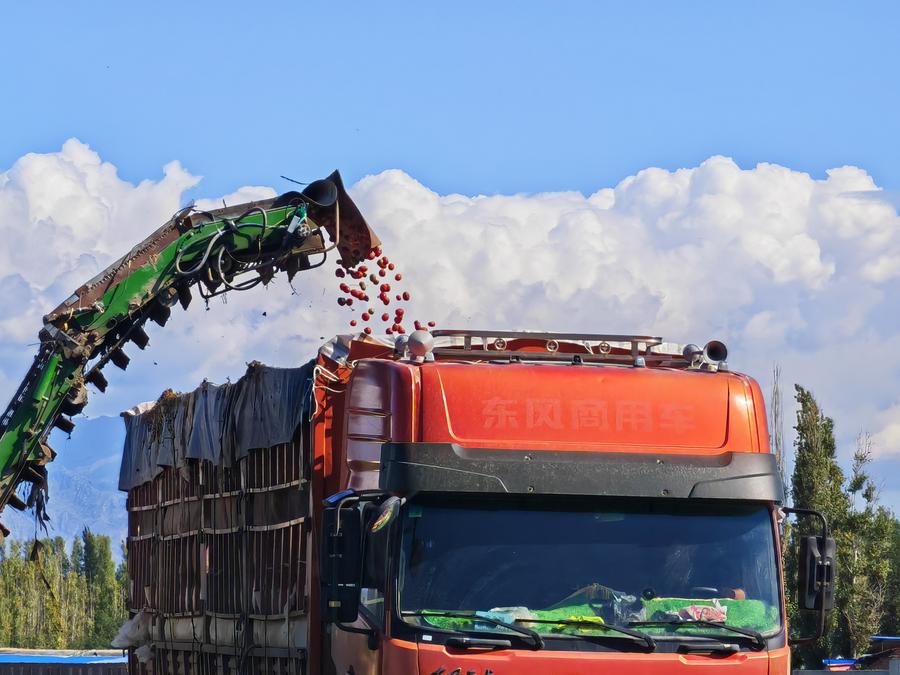
The report referred to is a comprehensive investigation of human rights concerns in Xinjiang conducted by the UN Office of the High Commissioner for Human Rights. It makes no mention of forced labor being used in Xinjiang’s tomato industry.
More importantly, it does not accuse China of using forced labor in Xinjiang or elsewhere. Instead, it provides context for alleged concerns. It explains that: “employment schemes have been an important component of China’s poverty alleviation programs, including in Xinjiang.” It reports, too, that “the [Chinese] Government closely links its poverty alleviation schemes to the prevention and countering of religious ‘extremism.’”
The report continues that “it is against this backdrop that reports [of compulsory labor] have emerged” and that “these allegations relate to two main contexts”: vocational education and training centers; and “labor transfer” schemes.
“Allegations” are not “evidence” as claimed by the BBC. Indeed, the allegations refer to just two items both carried by British media. One, appertaining to vocational education and training centers, is an article published in 2018 by the Financial Times (FT) newspaper. It reports interviews with families of only six of the “at least 1 million” people allegedly held in what it emotively terms “detention centers” and/or “internment camps.”
A 2021 BBC report is the basis of the other allegation. It recounts a two-minute item broadcast on Chinese Television in 2017 that explains how people from Xinjiang were being found work across the country and includes interviews with both recruits and their families. BBC reporters claim that these TV images of “tearful goodbyes between mothers and daughters” serve as evidence of “forced labor.”
At very least, therefore, the authors of the 2024 BBC documentary are found guilty of self-plagiarism. But they are guilty of much more.
Sensationalism, emphasizing the unusual and extreme, and concision bias are apparent in their simplistic and formulaic accounts that are devoid of any understanding of Chinese life or culture. Likewise, the parroting of others, BBC colleagues included, and the unquestioned presumption that forced labor is prevalent point to mainstream bias and path dependency.
Their account is speculative, based on weakly evidenced assertion and driven by negativity and, arguably, by prejudice against China and China’s way of doing things. From false premises they build an artifice, commissioning analysis of tomato puree sold by supermarkets in Britain and Europe to detect any that contain tomatoes from Xinjiang.
It is unclear whether the bias exposed, which is not atypical, reflects sloppy journalism or is motivated by geopolitics. Either way, it has real-world consequences.
With journalism intended to hold governments to account, poor journalism results in poor governance. The documentary is inciting supermarkets to break international law by engaging in the secondary sanctioning of China. If successful, this will be adding to unemployment and human suffering in Xinjiang and along China’s supply chains.
The BBC, which prides itself on fairness, is caught unfairly fueling negativity towards China and distorting policy discourse in Britain at a time when Anglo-Chinese relations are under review.
 Facebook
Facebook
 Twitter
Twitter
 Linkedin
Linkedin
 Google +
Google +




